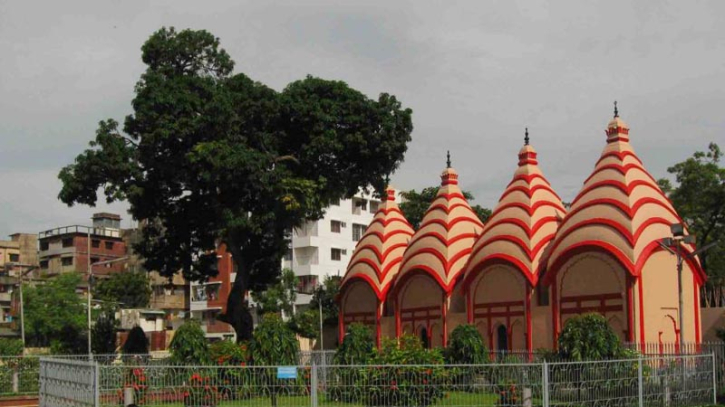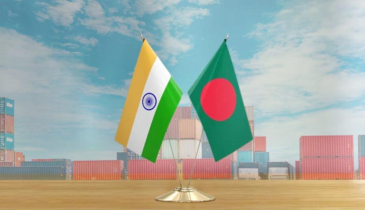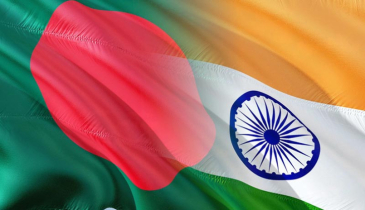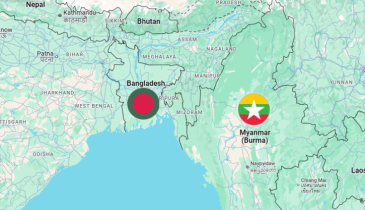Is Bangladeshi Hindu Community a Pawn IN Geopolitics?

On 26 October, Dattatreya Hosabale, the General Secretary of the Rashtriya Swayamsevak Sangh (RSS), urged the United Nations (UN) and the world community to save Bangladeshi Hindus from persecution. This urge is one among numerous made by Indian political leaders following the Sheikh Hasina’s ouster in wake of mass uprising on 5 August. Following political changeover in Bangladesh, the Indian government established a commission to coordinate with the former about minority issues. What is the reason for the Indian political establishment’s worry towards Bangladeshi Hindus?
A Comparative Analysis of Communal Harmony
Bangladesh is a Muslim-majority nation, with 91.04% of its inhabitants identifying as Muslims. Nevertheless, the nation has a significant Hindu demographic, comprising 7.94%, or roughly 13.48 million individuals. Still, the present territory of Bangladesh has historically shown religious tolerance and intercommunal harmony.
However, in neighbouring India, the Hindu nationalist government has publicly advocated an anti-minority, anti-Muslim agenda to attain political aims, causing violent religious riots. Burmese military rulers utilised Buddhist nationalism to explain their 2017–2018 massacre of Muslim Rohingyas. In the 1980s and 1990s, 25% of Bhutan’s Hindu minority was ethnically cleansed. In Buddhist-majority Sri Lanka, Hindu-majority Tamils were mistreated, causing a 25-year civil war. Religious conflicts have left tens of thousands killed in Pakistan and nearly made it a ‘failed state’.
In broader sense, anti-minority sentiment grows worldwide. In the US and Europe, anti-minority and anti-immigrant sentiments turn out to be political and social weapons. Many Arab countries have persecuted religious minorities, whereas Israel has oppressed Palestinians since its formers establishment.
Geopolitics
Given that, Bangladesh has better inter-communal relations than many other countries. However, Indian political leaders and media outlets often portray Bangladesh negatively, citing Hindu persecution. Often, the narrative provided by Indian media contradicts the actual scenario happening in Bangladesh.
In December 2019, the Indian Parliament enacted the Citizenship (Amendment) Act, 2019 (CAA), which granted eligibility for Indian citizenship to Bangladeshi, Pakistani and Afghan Hindus and other minorities based on persecution in their countries of origin. By this action, India formally asserted that Hindus face persecution in Bangladesh, prompting discontent from the then Bangladeshi administration.
Even, after 5 August, the Indian media baselessly spread misinformation and disinformation. It is true that following Awami League’s ouster, anti-social forces violently attacked Bangladeshi Hindus (mostly because of their association with AL), but the interim government protected them and most Bangladeshis condemned it. Even Islamist parties condemned the violence against Bangladeshi Hindus. Muslims in Bangladesh preserved Hindu shrines, showing intercommunal cooperation. Bangladesh celebrated Durga Puja peacefully this year.
Are Bangladeshi Hindus being utilised as a geopolitical instrument?
Indian officials frequently articulate their concerns regarding Bangladesh in humanitarian terms; but they are, in fact, leveraging the problem as a strategic instrument to advance their geopolitical goals in the region. The exploitation of the suffering of Bangladeshi Hindus encompasses multiple facets.
Bangladesh is sovereign; hence India cannot interfere in its internal matters under international law. Expressing apprehensions regarding the plight of Bangladeshi Hindus aims to induce a division within Bangladeshi society. Indian media sources and social media platforms have propagated exaggerated narratives of Hindu persecution in Bangladesh and disseminated false information, aiming to instil panic among Bangladeshi Hindus. This aims to isolate the Bangladeshi Hindu population from mainstream society and transform them into a means to exert pressure on Bangladesh.
India’s worry over the plight of Bangladeshi Hindus is dubious. Recently, the southeastern and northeastern regions of Bangladesh saw a significant flood, allegedly due to the release of water from Indian dams. Among the millions affected by the floods are hundreds of thousands of Bangladeshi Hindus. This indicates that India’s purported humanitarian concerns for Bangladeshi Hindus are grounded in geopolitical aspirations rather than authentic cause. Bangladesh must take extraordinary measures to protect Hindu lives, property and rights, while Muslims must always show religious tolerance, so that none can take advantage by raising such issues. -Source: daily sun
.png)









